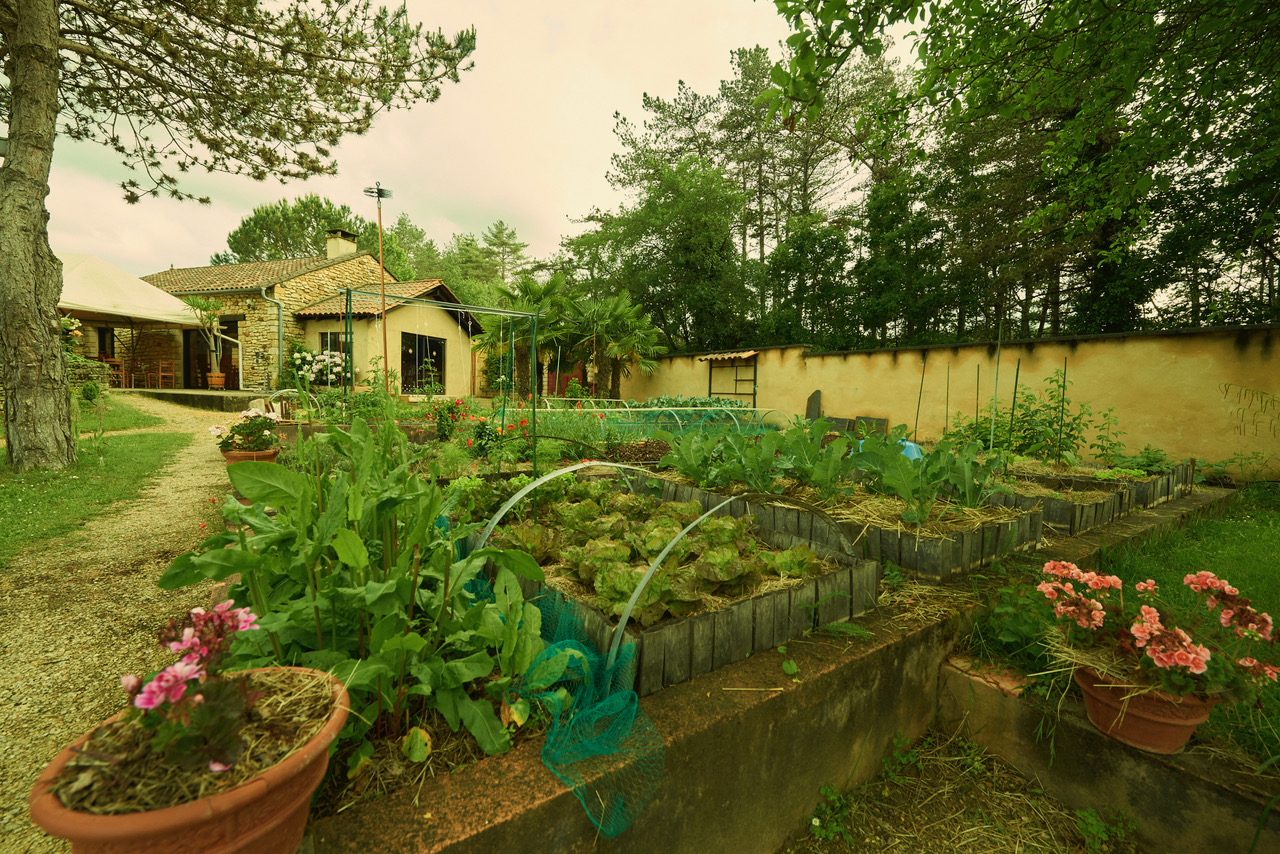
“My life unfolds itself, just as it will.”
Sando Kaisen grows vegetables naturally, in loam, as the forest has done for millions of years. He does so without working the soil, hoeing, weeding, or composting; without any input, chemical or biological; and practically without watering. One could say that he practices “permaculture,” but he prefers to say that he has put himself at the service of nature, demanding nothing while protecting it and creating the conditions for the greatest possible biodiversity.
He does not call himself a gardener, either. He simply offers to all living things the fruits that only the Infinite Heart can provide.
“I have studied a great deal, but, ultimately, it is nature which is my greatest Master, because, unlike men, it is not artificial, does not lie, does not promise anything, does not seek to dominate or to direct anything. Nature is very vulnerable, since it is forced to accept everything that happens to it.”
The people and monks of today delude themselves into thinking that they possess the true Zen, particularly if, in search of power and recognition, they are confirmed by Japanese authorities.
He says, moreover:
“I see my own face in nature, in the smallest insect. Wanting to grasp the emptiness of the mind while seeking to observe Buddhahood in phenomena is an error, because objects are empty by their nature. They are like a dream. Seeing Buddhahood in objects is the domain of the Awakened, but in that case the objects are no longer objects, but rather oneself. And ultimately, it is neither oneself nor objects, but Dharmakaya, the indivisible body of the birthless Buddha.”
“Honors mean little to me, nor does the regard in which I am held by others. I have transmitted the spirit of the Great Mokudo Taisen, and to the vegetable garden it is a matter of the utmost indifference.”
“The old Siberian bear contemplates the mounds of straw in the peaceful snow.”